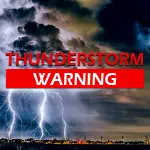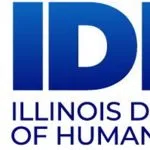
 Effingham, IL -(Effingham Radio)- Recognizing Illinois veterinarians who provide compassionate care with leading-edge medical practices for animals and their human caretakers, and whose actions impact organized veterinary medicine, the Illinois State Veterinary Medical Association (ISVMA) presented their annual awards at its recently held virtual convention.
Effingham, IL -(Effingham Radio)- Recognizing Illinois veterinarians who provide compassionate care with leading-edge medical practices for animals and their human caretakers, and whose actions impact organized veterinary medicine, the Illinois State Veterinary Medical Association (ISVMA) presented their annual awards at its recently held virtual convention.
“This year has been a unique experience for Illinois’ veterinarians, unlike any other,” said Dr. Olivia Rudolphi, ISVMA’s President. “The COVID-19 pandemic led veterinarians to be designated as essential service providers protecting the health of companion pets and livestock. We were there to help these animals and their caretakers when the world ‘shut down.’”
Dr. Rudolphi says the animal connection to the human world is undeniable. “From critical lab work necessary for addressing how the pandemic affects both animals and humans, to the gentle care of a dog or cat in a local veterinary clinic, to the mentoring of the next generation of veterinary professionals, this year’s award winners led by example to further the positive impact we as professionals have in the lives of both animals and humans in Illinois. Congratulations to all of our veterinary professionals!”
2020 ISVMA Veterinary Service Award
Presented to ISVMA members who have demonstrated outstanding service to the veterinary profession.
-Veterinary Diagnostic Laboratory, University of Illinois, Champaign and Buffalo Grove.
- Since early this year, faculty, administrative staff and students at the University of Illinois’ Veterinary Diagnostic Laboratory (VDL) continue to experience an unprecedented year in animal and human COVID-19 testing. Because of the ongoing pandemic, the VDL team began conducting COVID-19 testing for the University’s faculty and students, campus-wide. This effort is continuous as required by University health-safety directives. In fact, staff in the VDL is on average testing around 10,000 COVID-19 samples a day, seven days a week. Laboratory staff was also involved in the development of the now broadly used COVID-19 saliva testing pioneered by the University and used by state and local governmental and private sector health agencies. VDL clinicians also analyzed a positive test for COVID-19 in a tiger at the Bronx Zoo in New York.
The VDL is led by Dr. Richard Fredrickson, Director, who is also a Clinical Professor of Veterinary Clinical Medicine at the University’s College of Veterinary Medicine. Dr. Fredrickson earned his doctorate from Iowa State University.
2020 Dr. Erwin Small First Decade Award
Awarded to a young veterinarian who has been practicing veterinary medicine in the last 10 years and has become a leader in supporting the profession through contributions to organized veterinary medicine.
-Jessica Shultz, DVM, Effingham Veterinary Clinic, Neoga.
- Growing up on her family farm just north of Effingham, Dr. Shultz’s love of animals evolved from a 4-H hobby into a profession. A 2012 graduate of University of Illinois’ College of Veterinary Medicine, Dr. Schultz began her professional career at Effingham Veterinary Clinic. Dr. Shultz has been heavily involved in the ISVMA over the past eight years and, in her spare time, raises show swine with her spouse.
2020 Dr. Cecil Ingmire CVT Award
Presented to a certified veterinary technician who has demonstrated a strong commitment to the profession through involvement in organized veterinary medicine.
-Jessica Risley, CVT-VTS, University of Illinois Veterinary Teaching Hospital, Champaign.
- Dr. Risley studied at the University of Illinois and graduated from Parkland College’s Veterinary Technician Program. Dr. Risley began her career at the University of Illinois’ Veterinary Teaching Hospital, specializing in anesthesia service, later becoming its lead anesthesia tech. She also supervises the anesthesia clinical rotation at Parkland College’s Veterinary Technology Program. Recognized for her contributions at the University of Illinois’ veterinary hospital, Dr. Risley was presented the University’s Chancellor’s Distinguished Staff Award in 2015.
2020 ISVMA President’s Award
Presented to an individual or group that has significantly advanced the interests of the veterinary profession in Illinois.
-Clyde Dunphy, DVM, Retired, Pleasant Plains.
- Dr. Dunphy is a 1974 graduate of the University of Illinois’ College of Veterinary Medicine. He once practiced equine/large animal veterinary medicine that eventually evolved into small animal practice clinics. He most recently retired from Capitol Illini Veterinary Services with clinics in both Springfield and Chatham. Today, he is active advising and mentoring new generations of Illinois veterinarians on purchasing/owning a veterinary clinic, conducting professional development classes for veterinarians, and staging mock career interviews with veterinarian college students. He is a past ISVMA president and has served as President of the Newfoundland (dog) Club of America.
All award recipients were nominated by peer ISVMA member veterinarians and professionals and then selected by the ISVMA Nominations and Awards Committee, comprised of volunteer veterinarian professionals. The ISVMA is a professional association representing more than 1,800 member veterinarians, Certified Veterinary Technicians, and collegiate veterinary and technician students from around the state to promote and protect veterinary practices. ISVMA leaders and members study a multitude of cutting-edge medical and business practices, as well as pertinent legislation to determine their impact on pets, animals and their human caretakers.
ABOUT ISVMA
Illinois veterinarians’ profession is the health and welfare of companion pets and livestock in the 102 counties in the state. The ISVMA is a professional association representing more than 1,800 member veterinarians, veterinary and technician students and Certified Veterinary Technicians from around the state to promote and protect veterinary practices. ISVMA leaders and members study a multitude of cutting-edge medical and business practices, as well as pertinent legislation to determine their impact on pets, animals and their human caretakers.










Comments